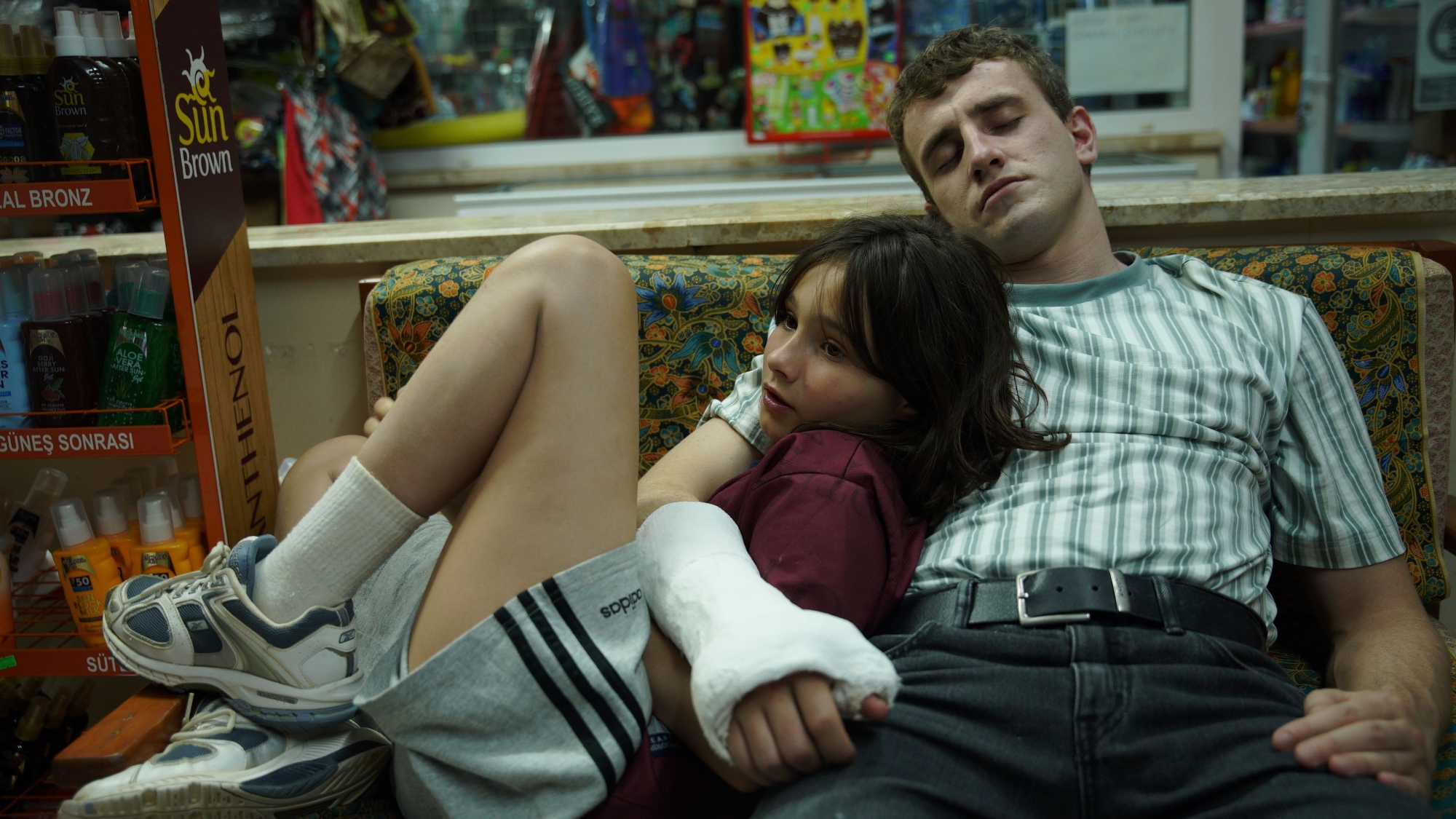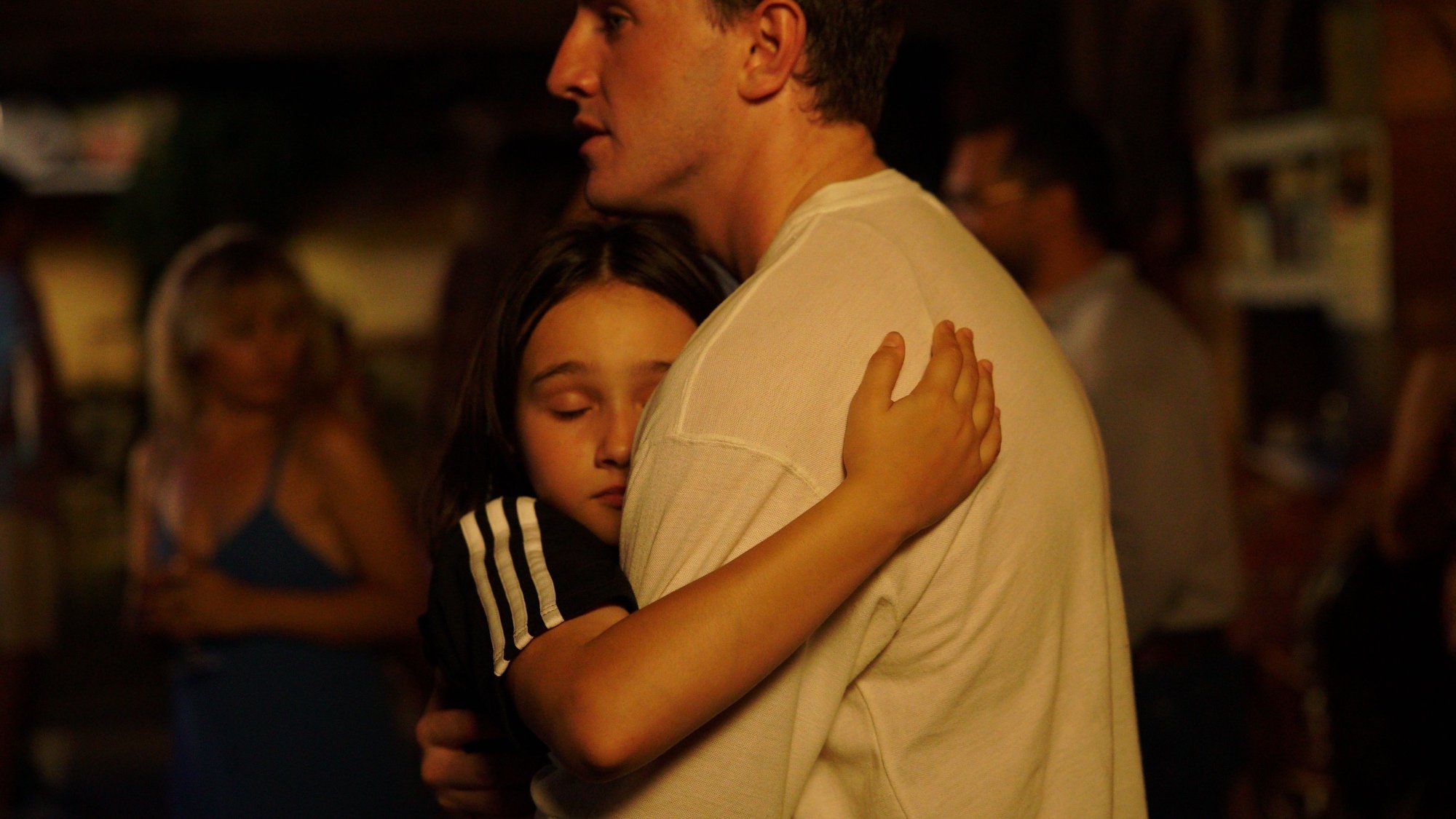
‘Aftersun’ Movie Review: Charlotte Wells’ Feature Debut Is a Deep, Mesmerizing Masterpiece
Charlotte Wells’ Aftersun is a fervent reminder of what cinema is capable of. There are some films that have the power to make their audience stop and reflect on their own life, which Wells manages to do with her breathtaking feature debut. It’s an understated and slow-moving story, but it says more than it ever could with dialogue alone. Aftersun is a soul-shaking cinematic achievement with one of the best depictions of depression ever to hit the silver screen.

‘Aftersun’ is a father-daughter story

Sophie (Frankie Corio/Celia Rowlson-Hall) takes a look back at a vacation to Turkey that she took with her father, Calum (Paul Mescal), 20 years prior. She has joyful memories of times by the pool and various excursions over the course of their time at a resort. However, Sophie begins to discover the truth in between her distinct memories and the exaggerated echos that truly collated into her recollection of the experience.
Aftersun is a story about the time in every child’s life when they begin to see their parents as real and flawed human beings. Sophie attempts to learn more about Calum through the lens of camcorder footage of a vacation that marked a major turning point in both of their lives.
Writer/director Charlotte Wells crafts a retrospective on memory, family, and belonging
Aftersun explores the concept of time and aging, as Calum is a young father turning 31 years old. Meanwhile, Sophie recently turned 11 and is increasingly curious about her father’s experiences at her age, but considers him old. He doesn’t necessarily disagree, shocked to see himself in his 30s, unable to see how he will be at 40. Their relationship is tender and loving, but the cracks in Calum’s facade continue to break out as his daughter asks him to reflect on his youth. However, memory isn’t always what it seems.
Sophie’s mother is casually brought up in conversation, although the 11-year-old doesn’t have much interest in expanding on their relationship. And it doesn’t matter. Aftersun is about a father-daughter connection through time, as Sophie reflects on it. Wells occasionally introduces a dark, strobe-lit room filled with bodies that acts as ever-apparent symbolism of an existence outside of time and space.
There’s a coming-of-age story, although it isn’t the primary focus. Their hotel acts as a playground of sorts for Sophie to explore herself, as she naturally gravitates toward guests older than herself. She witnesses other vacationers kissing, which she can’t turn away from. Calum recognizes that she’s at a pivotal age and wants to keep their open line of communication. He teaches her self-defense, meditation, and makes it known that her urges and experimentations are normal and healthy, but he doesn’t want to lose their closeness.
‘Aftersun’ is an instant classic

Wells and cinematographer Gregory Oke wield a sun-soaked image that frequently highlights the environments of Sophie and Calum’s excursions. There’s a switch between camcorder video footage and traditional film, establishing somewhat of an elevated “found footage” format that visually compliments the film’s exploration of memory. Aftersun is non-linear storytelling that moves between the past, the present, and a world in our minds that exists outside of our concept of time.
Wells demonstrates a masterful eye behind the camera, establishing some of the most memorable shots of the year. She frequently obscures Calum’s face, often telling Sophie’s story through shadows and reflections. Much like far-reaching memories, it’s often clouded. There’s a shot of a polaroid photograph that develops right before our eyes over a continuous shot that perfectly captures this. Additionally, Wells incorporates some of the best use of music licensing imaginable to further make her point.
Aftersun isn’t a traditional narrative. Rather, it’s an examination of memory and how we can never truly know our loved ones. Sometimes, we fail to see the most obvious things that exist right in front of us. Even upon reexamination of our memories, there is always something that looms beneath the surface that is never truly known.
Mescal and Corio’s father-daughter chemistry is extraordinary, perfectly capturing the subtle and nuanced world of memories that Wells created. Aftersun is an instant classic that will stand the test of time. It’s a film unlike any other and is sure to plant a seedling of emotion that will progressively swell up inside of you. It’s the best film of the year.
Aftersun plays in theaters starting on Oct. 21.


